Welcome to our Pool Cue Size Guide! Choosing the right pool cue size is crucial for optimal performance and comfort. This guide will help you select the perfect cue based on your needs, ensuring a better gaming experience.
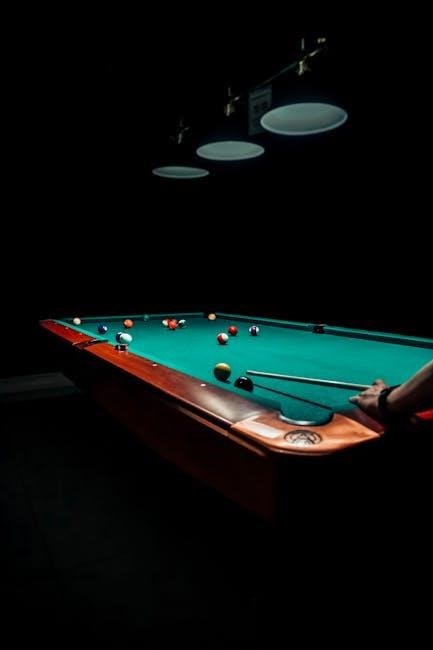
Standard Pool Cue Lengths
Standard pool cues typically range from 57 to 59 inches in length, with 57 inches being the most common for one-piece cues and 58 inches for two-piece, designed to suit most adult players.
2.1 Typical Lengths
The most common pool cue lengths are between 57 and 59 inches. A 57-inch cue is standard for one-piece designs, while two-piece cues often measure 58 inches. These lengths provide optimal balance and control for most adult players, making them ideal for both casual and competitive play. They accommodate average heights and playing styles, ensuring versatility and comfort during games.
2.2 Recommended for Adults
Adults typically find 57 to 58-inch cues ideal, offering a balance of reach and control. Taller players may prefer 58-inch cues, while shorter adults or those with smaller hands might opt for 57 inches. These lengths ensure proper alignment and stroke mechanics, enhancing accuracy and comfort during play. They are versatile enough for various pool table sizes and playing styles, making them a popular choice among both casual and competitive players.
2.3 Shorter Options for Children or Tight Spaces
Cues measuring 48 to 52 inches are perfect for children or tight spaces. These shorter cues provide better control for younger players and are easier to maneuver in smaller rooms. Adults preferring shorter cues for tighter spaces also benefit from this compact size. They ensure accurate shots and comfortable handling, making them a practical choice for both junior players and those with limited space, while maintaining performance quality and accessibility.
Several factors determine the ideal pool cue size, including player height, table dimensions, playing style, and personal comfort, ensuring a tailored fit for optimal performance and control. A player’s height significantly influences pool cue size. Taller players typically prefer longer cues for better reach and alignment, while shorter players benefit from shorter cues to maintain control. A 57-58 inch cue suits most adults, but those under 5’4″ may find 48-52 inch cues more comfortable, ensuring proper stroke mechanics and accuracy. Personal comfort and posture also play a role in choosing the right fit. Table size plays a crucial role in determining the ideal pool cue length. A 7-foot table typically pairs well with a 48-inch cue, while 8-foot and 9-foot tables often require 52-inch to 58-inch cues for better reach and control. Larger tables demand longer cues to strike balls effectively, especially in tighter spaces. Matching cue length to table dimensions ensures optimal gameplay and maneuverability, avoiding awkward shots and enhancing overall performance. Proper fit is key for precision and comfort.
Your playing style significantly influences the choice of pool cue size. Players with a more aggressive stroke may prefer a slightly shorter cue for better control, while those with a smooth, precise stroke often opt for a longer cue. Additionally, players who rely on long shots benefit from longer cues, whereas those focusing on tight spaces may prefer shorter options. Balancing cue length with your technique ensures consistency and accuracy in every shot. Comfort and adaptability are essential for peak performance. Personal comfort plays a vital role in selecting the right pool cue size. A cue that feels balanced and natural in your hands enhances performance and reduces fatigue. Consider your grip size, stance, and how the cue’s weight distributes during your stroke. Most standard cues weigh between 17-21 ounces, but your comfort may lean toward lighter or heavier options. Ensure the cue’s length aligns with your posture to avoid strain. Comfort directly impacts consistency and enjoyment of the game. Always prioritize how the cue feels during play. One-piece cues are crafted from a single piece of wood, offering a consistent feel and classic aesthetic. Two-piece cues feature a joint, allowing portability and easier storage, making them ideal for travel and convenience. One-piece cues typically measure 57 inches, while two-piece cues are slightly longer, around 58 inches, due to the joint. The design of one-piece cues ensures a seamless play, whereas two-piece cues offer portability without compromising performance. The joint in two-piece cues can vary, with some featuring quick-release mechanisms for easy assembly. Despite the difference, both styles maintain a consistent weight distribution, ensuring a smooth stroke for players of all skill levels. Materials significantly impact a cue’s flexibility, weight, and durability. Commonly used woods like maple or ash are favored for their balance and strength. The construction ensures optimal weight distribution, enhancing performance and control during gameplay. Different materials greatly affect a pool cue’s performance. Maple and ash are popular for their durability and balance. Graphite cues offer lightweight stability, while fiberglass provides flexibility. Wood cues are traditional and preferred by many for their feel. The choice of material impacts weight, vibration, and overall playability, making it a key factor in selecting the right cue for your style and preferences. Pool cues typically weigh between 17-21 ounces. Lighter cues suit control, while heavier cues deliver more power. Choose a weight that feels balanced and comfortable for your stroke. Standard pool cues typically weigh between 17 to 21 ounces. This range offers a balance of control and power, accommodating most players’ preferences. Selecting the right cue weight is essential for your game. Lighter cues (17-18 oz) offer more control, while heavier cues (20-21 oz) provide greater power. Consider your strength, stroke, and playing style to choose the ideal weight for accurate and consistent shots. Tip size significantly impacts your game, affecting accuracy and control. Common diameters range from 9 to 10mm, with larger tips offering better English and smaller tips providing precision. Pool cue tips typically range from 7mm to 10mm in diameter. Smaller tips (7-8mm) offer precision for advanced players, while larger tips (9-10mm) provide better control for intermediates. Standard cues often feature 9-10mm tips, balancing accuracy and power. The tip diameter significantly influences performance. Smaller tips (7-8mm) provide precision for advanced techniques, while larger tips (9-10mm) enhance control and consistency for intermediates. A 13mm tip is standard, balancing accuracy and power. Tip size affects how the cue ball is struck, impacting spin, direction, and overall gameplay effectiveness. Room size significantly impacts cue length selection. A 48-inch cue suits smaller spaces with 7-foot tables, while longer cues (57-58 inches) are ideal for larger rooms and tables, ensuring smooth gameplay. Room size plays a crucial role in selecting the right cue length. Smaller spaces with 7-foot tables often require shorter cues (48-52 inches) for better maneuverability. In larger rooms with 9-foot tables, longer cues (57-58 inches) provide optimal reach and control. Ensure your cue length matches your playing area to avoid obstruction and enhance gameplay quality. For a 7-foot table, a 48-inch cue works best in an 11.3×14.5 feet room. An 8-foot table in a 11.7×15.3 feet space pairs well with a 52-inch cue. A 9-foot table in a 12.2×16.3 feet room is ideal with a 57-inch cue. These examples ensure optimal cue length for different playing areas, enhancing gameplay comfort and performance. Custom cues offer tailored lengths, weights, and materials for unique preferences. Non-standard cues cater to specific needs, such as extra-long or shorter options, enhancing personal comfort and performance. Consider a custom cue if standard sizes don’t fit your needs. Taller players may need longer cues, while shorter individuals prefer compact designs. Custom cues also suit specific playing styles, offering tailored weight, balance, and tip size for enhanced control. Additionally, if you have unique preferences or require adjustments for comfort, a custom cue ensures optimal performance and satisfaction. Frequently Asked Questions address common queries about pool cue sizes, helping players make informed decisions. This section provides quick answers to ensure a smooth selection process tailored to individual needs. What is the standard length of a pool cue? Most cues are 57-58 inches, suitable for adults. Are shorter cues available? Yes, 48-52 inches are ideal for children or tight spaces. How does weight affect gameplay? Cues typically weigh 17-21 ounces, with 18-19 ounces recommended for most players. Can I customize my cue? Yes, custom cues can be tailored for height, style, and comfort. What tip size is best? Tips range from 7-13mm, with 9-10mm being most common for control and accuracy.Factors Influencing Pool Cue Size
3.1 Player Height
3.2 Table Size
3.3 Playing Style
3.4 Personal Comfort
One-Piece vs Two-Piece Cues
4.1 Differences in Length and Design
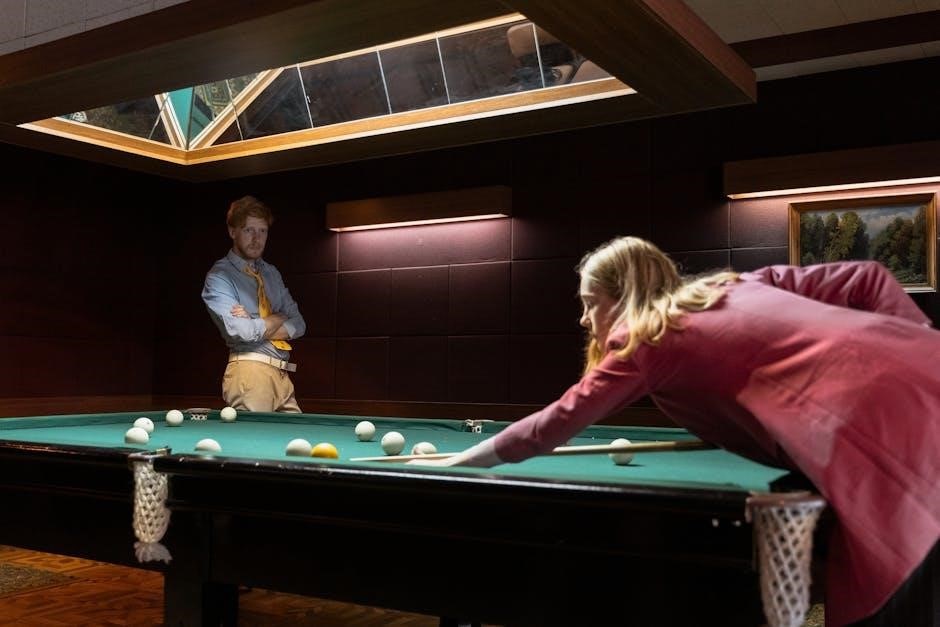
Materials and Construction
5.1 Types of Materials and Their Impact
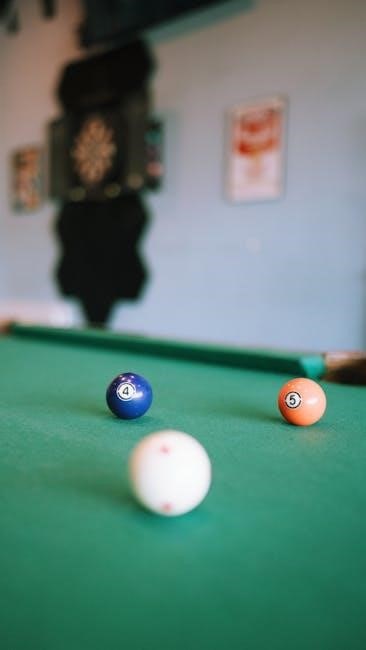
Weight Considerations
6.1 Standard Weight Ranges
6.2 Choosing the Right Weight
Tip Size and Its Importance
7.1 Common Tip Diameters
7.2 Impact on Gameplay
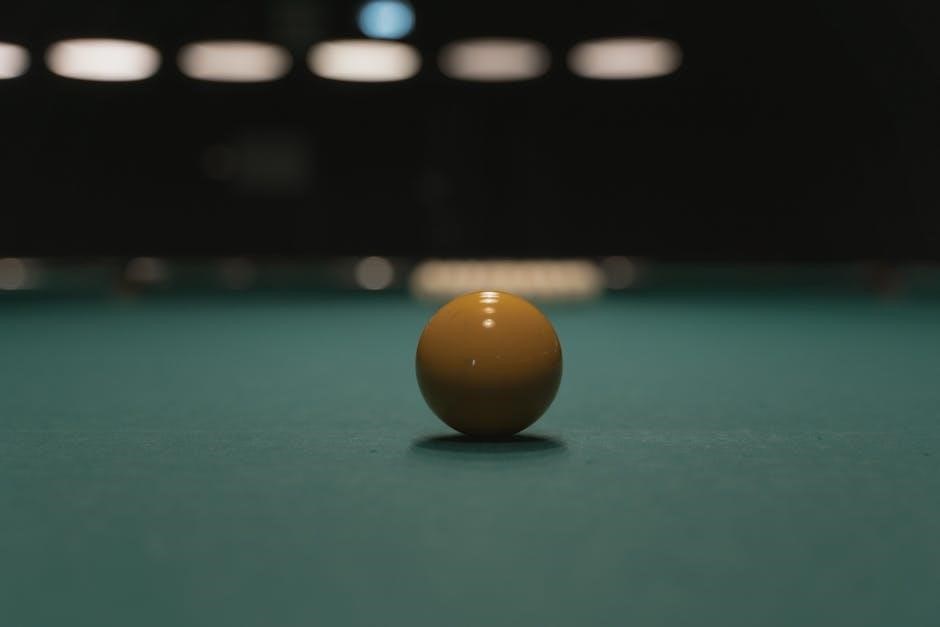
Room Size and Cue Length
8.1 How Space Affects Cue Choice
8.2 Examples of Room and Table Sizes
Custom and Non-Standard Cues
9.1 When to Consider a Custom Cue
FAQs
10.1 Common Questions Addressed
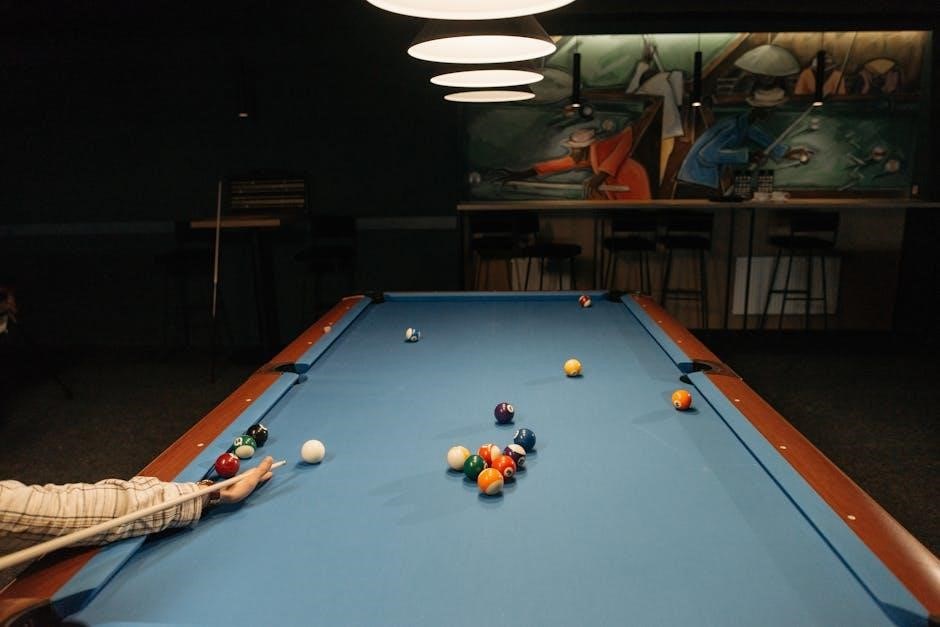
Leave a Reply